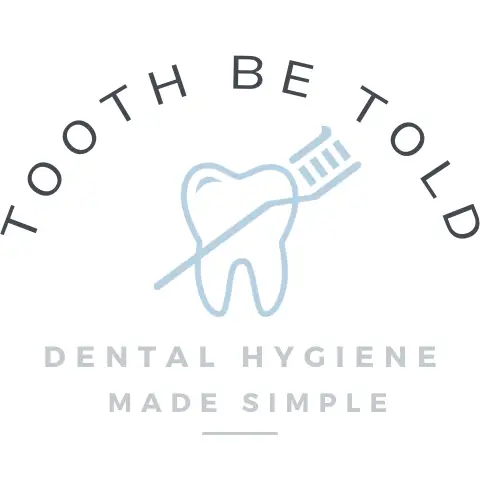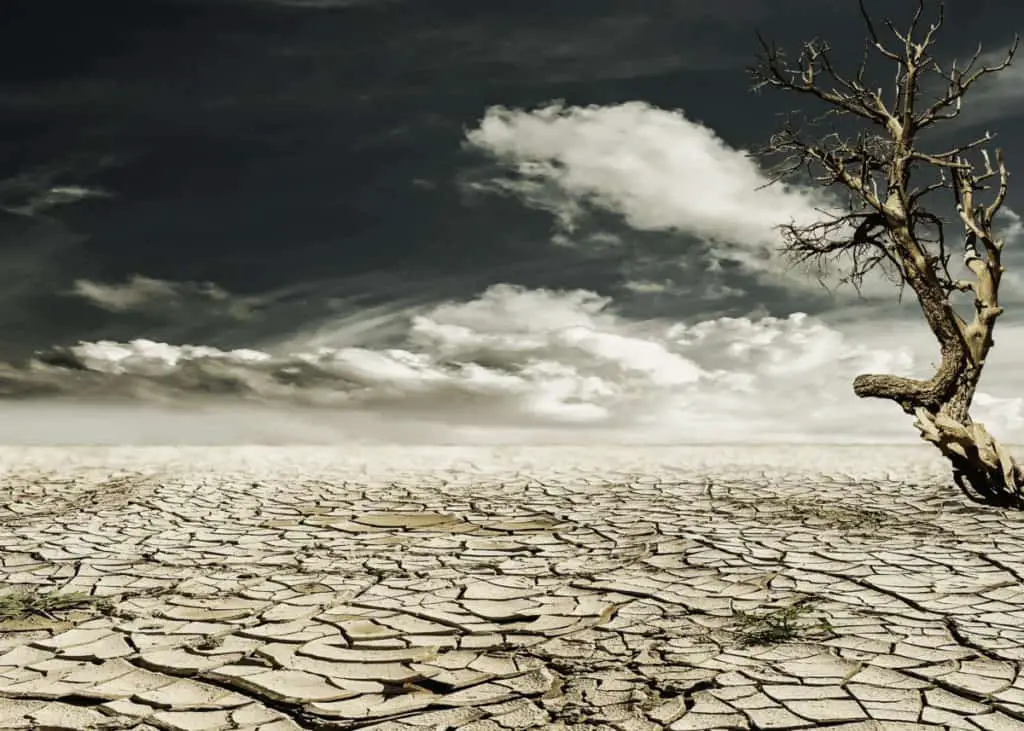
Does your mouth feel like the driest desert on the hottest day after you wake up in the morning and take off the CPAP mask? A dry mouth can be both a nuisance and a starting point for a lot of other dental issues.
Dry mouth (also called xerostomia), from wearing a CPAP can be prevented by checking for leaks in the mask and having your mouth closed while wearing. Using humidifiers, saliva substitutes/lubricants, and staying hydrated can improve dry mouth symptoms and prevent dental issues from lack of saliva.
Preventing dry mouth can easily be done and does not require a lot of time or money. In this post, I explain super easy ways to help relieve dry mouth, and how to protect your mouth from irreversible damage.
Saliva is so important for our well-being, and when it is diminished, the need for proper oral care is even more necessary. I go over some tips and tricks to protect your mouth, through both home care and products that I recommend to my patients that you don’t want to miss!
What causes dry mouth when using a CPAP
A leaking CPAP mask and mouth breathing are the biggest culprits in causing dry mouth. It can come down to a simple check on your mask to see if it is leaking air or determine if you are more of a mouth breather.
Another indication that the mask is leaking is if you find your eyes are getting dry. The air from the mask is being forced up around the nose towards the eyes, drying them out. I go over how to stop and prevent a mask leak in the next subheading.
Mouth breathing may be a little bit more tricky to stop. You may not even know that you are a mouth breather, and it’s something we definitely don’t think about often. I remember the first time I was ever asked by my dental hygienist if I breathed through my nose or my mouth, and I was truly stumped because it was never something I ever thought about.
And when I ask my patients the same famous question, I get stumped looks right back at me. Breathing is such an automatic thing, and we rarely pay attention to it.
Read now: How Can I Protect My Teeth From Dry Mouth? 18 Ways
How to stop and prevent dry mouth when using CPAP
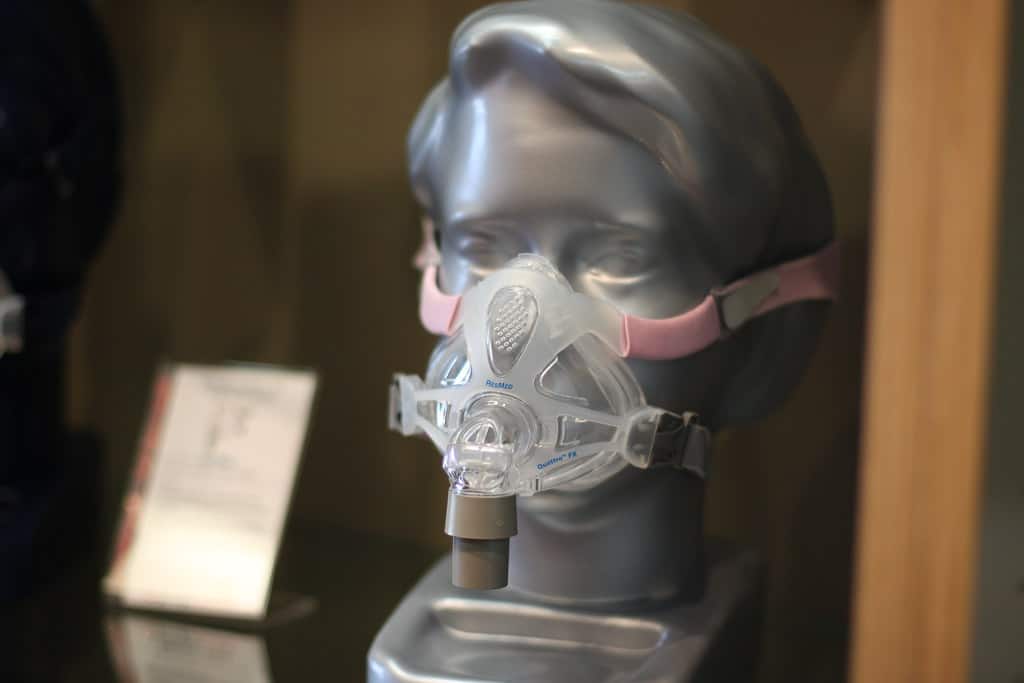
This is both simple and complicated at the same time. Because there could be many reasons why the mask is leaking or you’re breathing through your mouth, it could take some investigation to find out what it is. Maybe your dry mouth isn’t even from using the CPAP, with something else causing dry mouth, and the CPAP is making you more aware of it.
Leaking CPAP mask causes dry mouth
If you know that your mask is leaking, it could be for a number of reasons.
Your mask could be ill-fitted and not forming a proper seal on your face. You may be lucky that with a couple of small adjustments of the mask placement, the leak is fixed. But you may need to talk with your doctor about changing masks.
If the mask is the wrong size or fit, you may need to be refitted for another mask. If you are not using a full face mask, switching to one can make a difference as it will cover both the nose and mouth.
Most of the CPAP machines are fitted with a humidifier nowadays. If you know that your particular machine doesn’t have a humidifier option built-in, getting one could help prevent dry mouth by making the tissues moister.
Use a humidifier to relieve dry mouth from the CPAP
Even if your mask does have a humidifier option, your bedroom may be dry in general. Putting a humidifier around your bed can be a game-changer. It can decrease the chance of getting sick, having nose bleeds, and reduce symptoms of allergies, asthma, colds and cases of flu.
Getting the right humidifier is SO important. The difference in settings, and also the temperature of the water can make a drastic difference when trying to relieve the suffering from dry mouth. I don’t want you wasting your money on something that won’t work effectively for dry mouth and the effects of a dry mouth.
I have done a lot of research on the different humidifiers there are on the market, and VERY FEW even have multiple settings and have antimicrobial protection. Bacterial growth is a big issue in humidifiers and they need to be able to be cleaned properly, but also prevent bacterial growth in the first place.
It’s important to purchase a humidifier that has a wide top/lid that you can take off so you can clean the bacteria and dust from the inside.
You can find my recommendation for the humidifier that I use on my Dry Mouth Resource Page . 🙂
. 🙂
Keep well hydrated to reduce dry mouth
In a caffeine-obsessed world, coffee and tea are often consumed daily, and in large quantities. And how often are we hitting the recommended goal of the 8-8oz glass of water a day? I know I don’t reach that without really making an effort to drink more water.
If you are using a CPAP and getting a dry mouth, you can try and keep track of how much water you are consuming in a day. And sometimes, drinking 8-8oz glasses a day isn’t enough. Like I mentioned before, if you have an intake of caffeine, you sweat a lot, and are partaking in physical activities, you may need a lot more water.
Using oral lubricants to help with CPAP dry mouth
And sometimes water just isn’t enough to keep you from getting a dry mouth. Oral lubricants can last for a while in the mouth and coat the tissues to relieve symptoms and effects of dry mouth.
There are many different oral lubricants on the market that come in the form of gels, sprays, or rinses.
You can find a whole list of these items on my page Dry Mouth Dental Must-Haves !
!
Xylitol stimulates salivary glands to help with dry mouth
I’ll say it again! Xylitol is a game changer! It has profound effects on oral health with its ability to stimulate the salivary glands and protect the teeth from cavities.
Xylitol is an all-natural sugar alcohol that is derived from wood that comes from birch and other hardwood trees. When used in the mouth, xylitol decreases the amount of cavity-causing bacteria, streptococcus mutans.
Decreasing these bacteria prevents cavities from forming and acid levels in the mouth from increasing.
Xylitol also stimulates the salivary glands to produce more saliva. More saliva = more protection for your mouth.
Saliva plays such an important role in our oral health and prevents a lot of oral diseases such as gum disease and yeast infections. I go over the importance of saliva in more detail further along in this post, and you can read more in this study .
.
Xylitol comes in many different forms, such as gum, candy, rinses, tablets and pastilles. The thing with xylitol that everyone should be aware of is, you need a certain amount to get the benefit from it, and many over the counter products do not have enough xylitol in them.
When someone suffers from dry mouth and is looking for a product to use, using a high-grade product is very important. I only recommend a couple of products to my patients.
Xylimelts by OraCoat
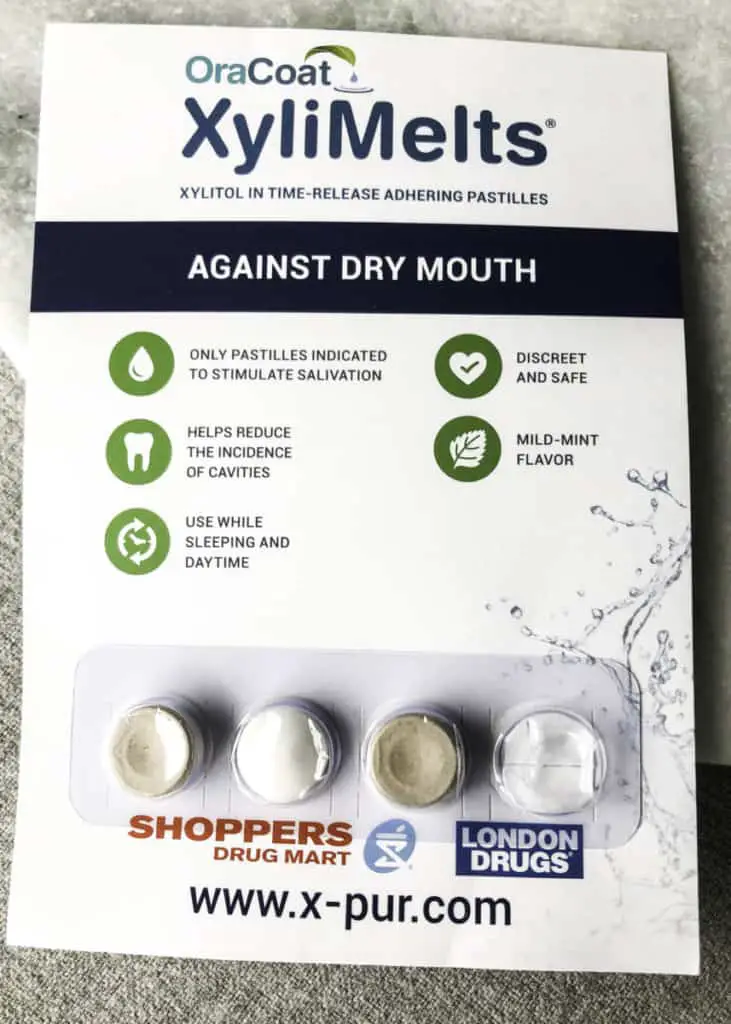
I have tested these pastilles myself (you can see one is missing), and it is by far the best product I have seen and used for managing dry mouth. I was taking a medication for some time that gave me a dry mouth, and because I took this medication before bed, my mouth would get so dry at night.
I would be grasping for a cup of water when I woke up in the morning.
I have tried all the gums, mints and xylitol products there are (because I always try every product before recommending it to my patients), and sometimes these products are not effective at night. They are not effective because there is not enough xylitol to achieve a therapeutic effect, or it is not enough because they don’t last a very long time.
Stimulating saliva, XyliMelts for dry mouth, moisturizes the mouth and coats it in a soothing oral lubricant to keep your mouth comfortable for hours.
You can find the Xylimelts on my Dry Mouth Dental Must-Haves page! 🙂
page! 🙂
The XyliMelts link is an affiliate link. It won’t cost you anything extra to use it, but it will help support me, and I’ll earn a little bit from the sale if you do decide to buy it, I’d really appreciate it 🙂.
These pastilles are made out of xylitol and oral lubricant to offer multiple benefits that will last for a long time. These pastilles are from a reputable company that we dental professionals get our supply from. They are trusted by the dental community and health professionals.
And, as a side note, the pastilles don’t just have to be used at night, they can be used at any time of the day if you feel like you have a dry mouth.
Making sure the mouth is closed
Open mouth = a dry mouth. Especially in the front of the mouth. We dental people can often tell if someone is a mouth breather by just looking at the gum tissue at the front of the mouth.
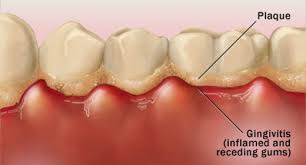
The gum tissue will appear ore red, bleed easily, and there is usually be more plaque, calculus (tartar) and stain that is built up. By closing the mouth, it will keep the tissues moist (do you hate that word as well?).
Use a chin strap to keep the mouth closed to avoid CPAP dry mouth
There are a few options online, but you can ask your doctor if they have any suggestions that are designed for people using a CPAP machine.
Using a chin strap to keep the mouth closed may be a great solution, but I have heard from a few people who have used it is that is can cause the lips to make a buzzing sound. And if you have a partner that hates when you snore or make noises when sleeping, wearing a chin strap might cause more annoying sounds. But, if it will help you, go for it!
Other ways to avoid dry mouth
Sleep in a cool room
Sleeping in a cool room can help reduce sweating at night that can prevent making you lose water and become more dehydrated. As well, the heat that most of us use is electric and dry heat, which dries out the air. This can lead to us drying out and can make dry mouth worse.
Don’t consume foods and drinks that make you dehydrated
Some habits are hard to break, and sometimes we can’t give up our small pleasures in life. Some of these pleasures may be foods and drinks that can make us dehydrated and make our mouths drier.
Foods and drinks that can exasperate dry mouth are;
- coffee
- alcohol
- tea
- salty foods
- other caffeinated drinks
Tobacco can also have drying effects on the mouth and increase the risk of gum disease and other oral health conditions.
If you feel like you can’t give up these things, maybe reducing them as much as possible is an option for you. Every little bit counts, and it is a collective effort. I know for me, the thought of giving up coffee just isn’t even imaginable.
However, when I think back to how much coffee I used to drink compared to now, it’s a huge difference. When I was in school, I would literally drink 3-6 coffees a day! Now I am trying my best to only have one.
If giving up these foods are not in the cards, you can try and drink a glass of water when eating/drinking these things and right after consuming them.
Other food/drink to avoid when you have a dry mouth
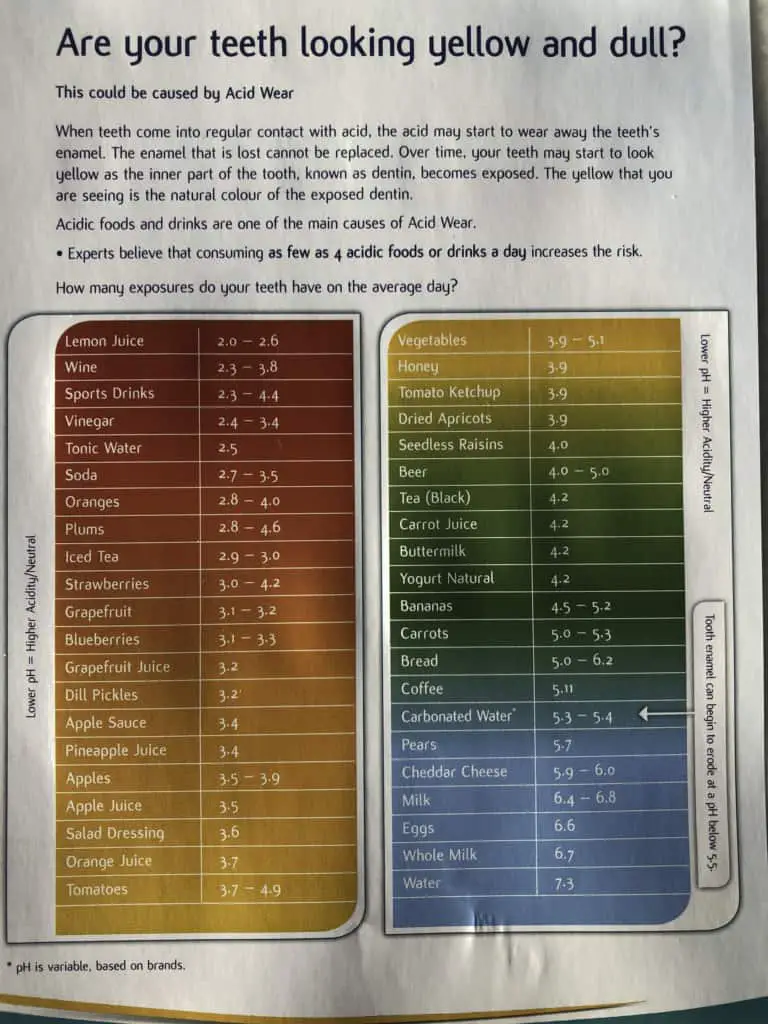
You will want to avoid food and drink that is acidic and high in sugar. Because of diminished saliva, there is not enough to help rinse away the acid to prevent wear and cavities.
A cavity can only form when the pH level of the mouth is below 5.5, so if there is not enough saliva to rinse it away, the mouth will stay in a more acidic state, and start to break down the tooth surface to form a cavity.
If you are consuming these things, you will always want to rinse your mouth out with water after. And wait at least 30 minutes before brushing your teeth.
Oral Hygiene routine and what products to avoid when you have dry mouth
Oral hygiene routine
Having a consistent and healthy oral hygiene routine can prevent a lot of dental problems that can come from a dry mouth.
You want to be flossing at least once a day, brushing at least twice a day, and cleaning your tongue and palate. The aim of the game is to disrupt and remove as much bacteria from the mouth as possible to prevent disease and infection.
Read now: How Often Should You Clean Your Tongue?
Products to avoid
Just like foods and drinks, some ingredients are put into our oral hygiene products that can cause an even more dry mouth.
I am not sure why it is not talked about more, because it is such an important topic. I also find that some companies have such a monetary advantage and can spend so much money on marketing to make us think we really need it. My favourite example of this is mouthwash!
I can see first-hand people’s impression of mouthwash from all the patients I see, and most people think that it is going to solve their dental problems. It’s no fault of their own, but the lack of knowledge and clever marketing.
It’s time, to be honest, mouthwash does not cure dental problems. Sure it may help when used in conjunction with flossing and brushing, and managing other oral health issues. But people use it as a crutch, they would rather rinse for 30 seconds using mouthwash than spend the 30 seconds flossing their teeth.
So much research has come out about gut bacteria, and the flora that is on and in our bodies, and how important good bacteria is for us. When we use mouthwash, it kills both good and bad bacteria.
You can read more about the ill effects of mouth wash in this post from the British Dental Journal. It includes information on mouthwash increasing blood pressure and affecting diabetes.
from the British Dental Journal. It includes information on mouthwash increasing blood pressure and affecting diabetes.
You want to avoid alcohol and SLS (sodium lauryl sulphate).
Mouthwash that contains alcohol and any dental product that contains SLS (Sodium lauryl sulphate), should be avoided. The alcohol will dry out the tissues, making the tissue of the mouth more sensitive to other things. Also, If there is diminished saliva, it allows yeast and bacteria to flourish.
Instead of using mouthwash, do some warm salt water rinses. It will be more gentle on the gum tissues and promote healing. If you are on a salt-restricted diet, then you will want to avoid the saltwater rinse.
You can find the best salt water mouth rinse recipe here .
.
Toothpaste, mouthwash and other dental products can have sodium lauryl sulphate in them, so check the ingredients. SLS doesn’t only cause dry mouth, but it can cause increased proliferation of the tissues of the mouth, causing the tissue to peel. As well, it can cause ulcers, and they can be quite uncomfortable!
What dental products to use when you have dry mouth
If you have a dry mouth, your oral hygiene routine is even MORE important. Because the bacteria and yeast will thrive in a more dry environment, keeping the numbers of these bad guys down is important to prevent disease.
Floss
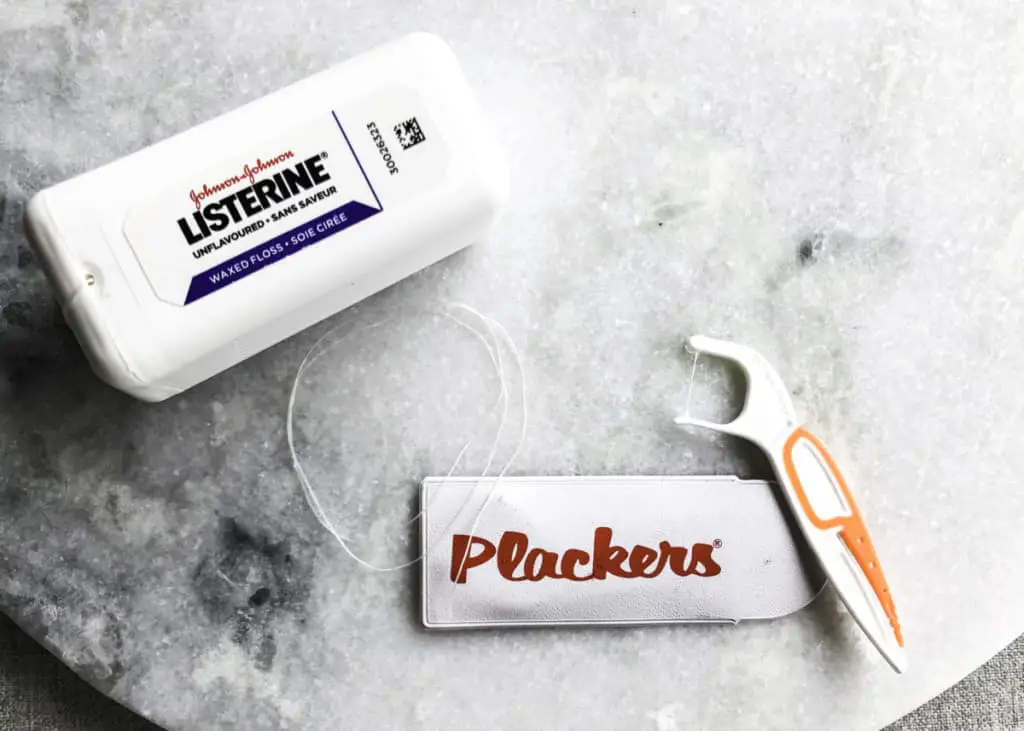
You could use any floss you want, as long as you are using it daily! Some people prefer using floss sticks over string floss, and it’s really up to you, and what you know you will be compliant with.
I wrote a post, going into a lot more detail on the types of floss, and what is the most effective. It will give you more information that you will want to know!
Read now: Plackers vs String Floss: Do Picks Work as Well as String?
Toothpaste
Because you are at more risk for decay and cavities with a dry mouth, using a toothpaste that has fluoride and/or nano-hydroxyapatite is extremely important. And if your dry mouth is severe, using a toothpaste that has a higher amount of fluoride can be more effective at preventing cavities.
A good toothpaste paired with good oral hygiene and reduction in acidic diet, great oral health can be achieved.
And again, you want to avoid toothpastes that have SLS in them.
Another good tip is to use a more mild flavoured toothpaste if you can because high amounts of flavouring agents can irritate the tissue.
Rinses
Just because you want to avoid mouthwash, all rinses are not out of the question. Some rinses have fluoride and xylitol in them to help protect the teeth from cavities and have a lubricant in the rinse to soothe the tissue.
Oral lubricants and XyliMelts
You will want to incorporate some oral lubricants to moisten the soft tissue of the mouth and to protect the hard tissue from decay and wear.
Depending on your preference, there are sprays, gels, gums, mints, candies and pastilles to get you through the day with a more comfortable and hydrated mouth. Just make sure they are sugar-free, and look for xylitol-containing products.
Why saliva is so important, especially for CPAP users
I keep going on and on about how a dry mouth can cause so many problems, but why is saliva so important to our oral health anyway?
Saliva is the first defence mechanism of the mouth, protecting our bodies from infection.
Saliva also contains phosphate and bicarbonate ions, to neutralize the acid from our food, drink, and bacteria. By neutralizing the acid, it protects the mouth, from acid attacks, it’s like having a saliva superpower!
It is lubricating, aids in speech and articulating the words we say. With no saliva, our tongues would be getting stuck, and swallowing can become extremely difficult. Even our food would not start to break down as quickly, as the enzymes in our saliva help to break down the food, and help with digestion.
Another amazing quality of saliva, is it aids tissue repair, protects teeth surfaces, balances out bacteria and yeast to have a healthy oral environment. And without it, yeast infections (called oral thrush) and gum disease are more prevalent.
Saliva helps to remineralize the teeth and to neutralize the acid that comes from the foods and drinks we consume and the bacteria in our mouths. As you can see in the photo below, the pH level of saliva is 6.3 to 6.6.
The levels of pH contribute greatly to our oral health. A cavity can only start to form when the pH level is below 5.5. You can see in the photo below, that most food and drink will fall below the pH level of 5.5.
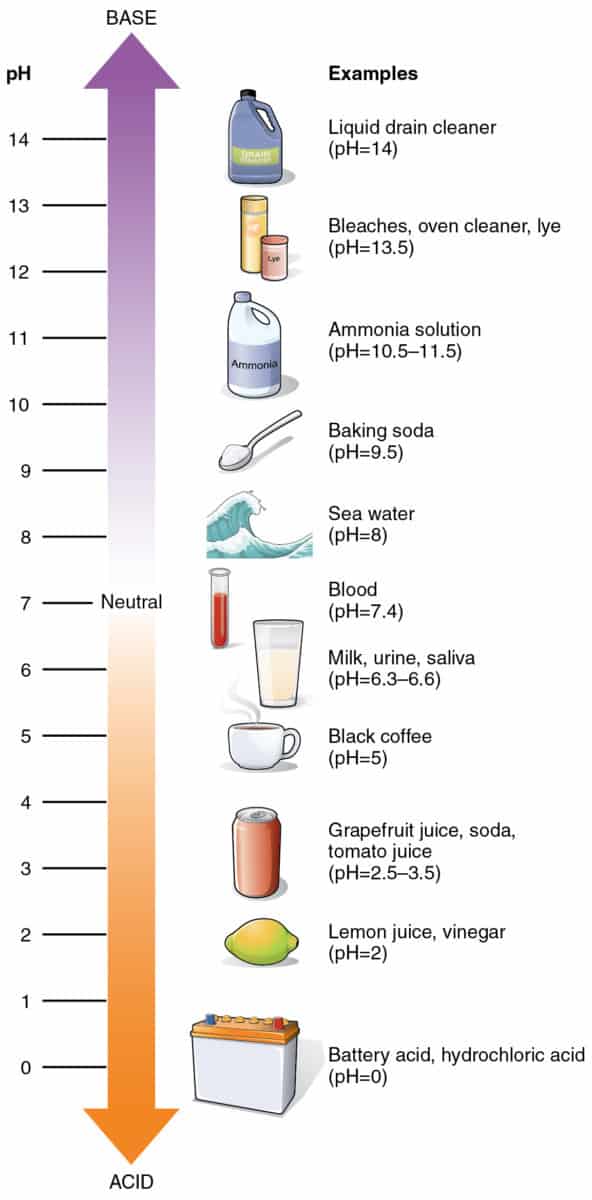
Things that are flaunted for being healthy, such as lemon water, can have detrimental effects on the mouth. Especially if you are sipping on it for an extended amount of time. Lemon water is like a constant acid shower on the teeth, definitely something we don’t want to be doing too much.
The saliva will help to rinse away the acid and bring the pH level of the mouth back up to above 5.5, so the teeth are protected. But if we have a dry mouth, it will take much longer for the saliva to work it’s magic, to the teeth are in contact with more acid.
When we consume food and drink that is sugary, the bacteria in our mouth feed on it and produce acid. That acid then starts to break down the tooth surface and demineralize it. If too much demineralization happens, a cavity will form.
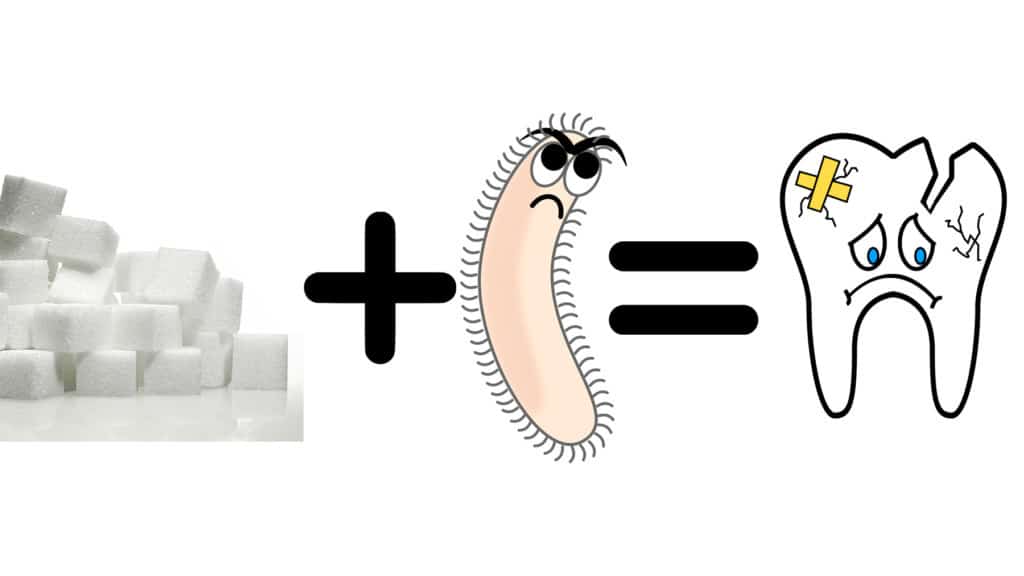
Other dental problems that CPAP (and dry mouth) can cause
Lack of saliva can increase the incidence of the following;
- cavities
- gum disease
- bad breath/halitosis
- tooth sensitivity
- oral thrush (yeast infection in the mouth)
- mouth sores/ulcers
- altered taste
- tongue discomfort/burning tongue feeling
- issues with the fit of dentures
- swallowing difficulties
- lichen planus
All of the above topics can have an impact on mental health and overall well being. It is amazing to see the difference in people who suffer from dry mouth, and a few small changes to improve dry mouth, make a huge difference in their overall health.
Other causes of dry mouth that are not from a CPAP (but can make dry mouth worse)
If you have any of the things listed below, it can make your dry mouth much worse if you are using a CPAP. Having multiple things affecting dry mouth can make it worse, but also harder to pinpoint and to manage it.
- obstruction of airflow
- an open mouth
- medications
- dehydration
- medical conditions; diabetes etc (research this)
- deviated septum
- allergies
- nasal infections
- Sjogren’s syndrome
- tobacco use
- ageing
- nerve damage
- radiotherapy to the head and neck for cancer treatment
Some of these things are easily managed, and others are not. Talk with your dental professional and medical doctor to see if you have any of the above things and if it’s possible that it’s affecting the amount of saliva you have and how dry your mouth is.
Common oral manifestations of people with sleep apnea
When doing an overall exam of my patients, certain things that we see may indicate someone has sleep apnea, even before it’s diagnosed.
- grinding your teeth (also called bruxism),
- clenching your teeth,
- red throat,
- scalloped tongue,
- pain in your jaw joints (TMJ)
- headaches
All of these can be signs of sleep apnea.
Sleep apnea is an important medical condition to have diagnosed because it can affect dental treatment, especially if it is under anesthetic such as IV sedation.
And it should always be disclosed with your dental professional if you have sleep apnea, as they can provide helpful information to maintain your oral health.
Always speak to your doctor and dentist
Your health professionals will have a whole overview of your medical and oral health and can exam your oral health and habits. Your individual needs may be different as to what I have written in this post.
They will give you the tools that you specifically need for your care.
I hope you have found this resource useful!
Holly 🙂
